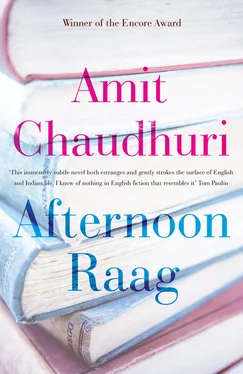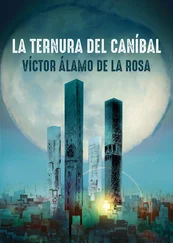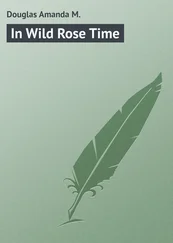The bathroom has a large square mirror like a window into which my father looks in the mornings. He wears floppy, unsmart pyjama trousers with buttons on the front which often remain inadvertently open, creating a dark, tiny fairytale entrance. After shaving, he splashes Old Spice on his cheeks, and the skin begins to glow with a faint green light. His hair started to grey when he was thirty, so he dyes it an unrealistic black, leaving one white plume smoking above his forehead. In the flat in Malabar Hill, where there was a bathtub, I used to hear him all my childhood rubbing the soles of his feet on it while bathing, making a sombre but musical sound as that of a double-bass.
In my childhood, too, my mother’s enormous friend, Chitrakaki, would visit us in the afternoons. This was when we lived in a flat in a tall building overlooking the sea, the Marine Drive, and the horizon. Together they would nap, my mother’s feet hidden by a cotton sheet, Chitrakaki, all two hundred pounds of her, inhabiting a loose, long gown and snoring and shuddering malarially in her sleep, both of them suspended a hundred feet above the earth without knowing it. Beneath them the Arabian Sea rushed and the earth moved, while their heads rested on pillows so soft that they were like bodies of pure flesh without skeleton. Bai, the maidservant, while she sat on the floor, rubbed oil upon my mother’s burning toes, and I, sitting beside her and looking over the edge of the bed, admired the trembling and lack of composure of Chitrakaki’s body, as her stomach soared and climbed and then toppled over, her head, though it was perfectly still, seeming to move animatedly behind her stomach. If Bai and I smiled at each other and passed satirical comments between her snores, she would say, in a god-like voice, ‘I can hear everything.’ She is now dead, though I remember her as before, waking from that sleep with my mother, and drinking tea, and avariciously cupping a spiced mixture or peanuts and thin crispy strands of gramflour that looked like screws or nails, and chewing upon it with an ostrich-like satisfaction in strange things. For, truly, both she and my mother loved this edible scrap, this tea-time assortment of spiced nuts and bolts; sometimes, she would bring with her a box of chakli, a savoury that is hard and brown and runs round itself in gnarled, concentric circles, and is like a coral, or the body of a sea-horse. Once or twice, we even went to a South Indian cafe together, for Chitrakaki loved exploring the tastes of different regions. Here, we ate from polished Formica tables, and were served by dignified Tamil waiters who, dressed in an impeccable uniform, looked like the soldiers of an ancient army. These men emerged from hot, swinging kitchen doors with plates balanced upon their palms, and on the plates were huge ‘paper’ dosas. These are large white cylinders made of rice paste; from a distance, they look like rolled-up rugs, and coming closer, they resemble ridiculous headdresses of vast importance; from table to table, the waiters bore them glumly, as if they were gifts.
When I think of food, I think of the cat-like way my mother disposes of fish-bones, and eats the head of the rohu fish, meticulously destroying its labyrinths. Here a silent contest ensues, as she chews and bites at it from all sides, till the head disappears and the indigestible bones lie clean and polished on one corner of the plate. At dinner, our leftovers — chicken bones, ribs, the white comb-like tail of the pomfret, which is simple and symmetrical — we deposit upon her beggar’s plate for her to chew and gnash and then blissfully spit out. My father, the most serious person at the table, uses, unexpectedly, a fork and a spoon to eat. He cannot begin till he has been served, and till that moment, remains sombre and paralysed. Once started, he floods his plate with daal, till it has made a yellow lake with white hillocks of rice upon its banks.
In the afternoon, Mohan, my music-teacher’s brother, and Sohanlal, his brother-in-law, ring the doorbell. Ponchoo then silently brings out the tablas and tuning-hammer from the cupboard, and the big tabla, shaped like half a globe, he balances between one arm and his chin maternally; the smaller one he clutches lightly but firmly by the strong cords of bark along its sides. Mohan and Sohanlal take a long time settling down, talking in their own language, the latter chattering very fast, while Mohan, a man of few words, sits carefully on the sofa. It is easy to see that Mohan is related to my music-teacher, that he is his brother, because their faces are similar, especially the colour of their skin, Mohan perhaps even a little darker than my music-teacher was. The timbre of Mohan’s voice is also like my guru’s, slightly husky, not loud or deep. Though he may not be aware of it, it is impossible for others not to see my guru come to life, in flashes, in Mohan’s facial expressions, his turns of phrase, and his gestures. But Mohan is an unassuming man, while my guru, shorter and a little plump, was a showoff, doing astonishing feats with his voice and then chuckling gleefully at our admiration. Laughter is drawn out reluctantly from Mohan, who I think used to both hero-worship and self-effacingly humour his brother (he told me once he had turned to tabla-playing because there couldn’t be two singers in a family, and that, when they were both learning the intricacies of vocal music from their father, he found his elder bother much too quick, much too clever to compete with), while my guru, especially when singing, would laugh happily after a difficult taan, and shake with mirth when he arrived at, after much deliberately drunken meandering, the sama, bringing a small, reluctant smile to his younger brother’s lips. On tapes on which I recorded my guru singing in my house, complex melodic leaps and falls performed by him can be heard punctuated by brief chuckles.
When a singer performs, it is the job of the accompanists to support him dutifully and unobtrusively. A cyclical rhythm-pattern — say, of sixteen beats — is played at an unchanging tempo on the tabla, and the song and its syllables are set to this pattern, so that one privileged word in the poem will coincide ineluctably with the first of the sixteen beats in the cycle. This first beat is called the sama, and much drama, apprehension, and triumph surround it. For the singer is allowed to, even expected to, adventurously embark on rhythmic voyages of his own, only to arrive, with sudden, instinctive, and logical grace, once more at the sama, taking the audience, who are keeping time, unawares. Once this is achieved, the logic seems at first a flash of genius, and then cunningly pre-meditated. While the pretence is kept up, and the singer’s rhythm appears to have lost itself, the tabla-player, with emotionless sobriety, maintains the stern tempo and cycle, until the singer, like an irresponsible but prodigious child, decides to dance in perfect steps back into it. Similarly, when a singer is executing his difficult melodic patterns, the harmonium-player must reproduce the notes without distracting him. The tabla and harmonium players behave like palanquin-bearers carrying a precious burden, or like solemn but indulgent guardians who walk a little distance behind a precocious child as it does astonishing things, seeing, with a corner of their eye, that it does not get hurt, or like deferential ministers clearing a path for their picturesque prince, or like anonymous and selfless spouses who give of themselves for the sake of a husband. Mohan, who plays the tabla with clarity and restraint, created the ground on which my guru constructed his music, and Sohanlal, attentively playing the harmonium, filled in the background. In the care of these two custodians, my guru sang and shone with his true worth.
Читать дальше












